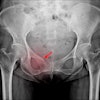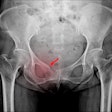As AI continues to be incorporated into radiology, its use could also expose clinicians to risk, both short- and long-term, according to an opinion published July 30 in the Journal of the American College of Radiology.
"The law governing AI in radiology is evolving and unsettled," wrote Tanya Karwaki, JD, PhD, of the University of Washington Department of Health Systems and Population Health in Seattle. "As a specialty, radiology is a leader in embracing AI … AI has potential to enhance patient care and optimize clinician workflow … lessen burnout rates, and increase clinician capacity for more challenging cases. However, as [researchers have reported] AI does not equally impact all radiologists' diagnostic performance [and] the potential benefits of AI must be balanced against potential legal risks."
Karwaki outlined three potential effects of the incorporation of AI into radiology:
- More lawsuits are likely. New technologies such as AI often prompt medical malpractice claims, which in turn "clarify the standard of care as AI is incorporated into the standard of care," she noted. In this moment, during which case law and a "robust regulatory framework" are developing regarding the use of AI in radiology, "radiologists should anticipate an increasing number of lawsuits," she wrote.
- AI could strengthen the patient-radiologist relationship. "The patient-radiologist relationship may emerge stronger from incorporating AI into radiology workflow, contributing to a decrease in the number of medical malpractice claims, if there are increased opportunities for communication," Karwaki explained.
- State legislative efforts will likely foster AI's regulation. "States have demonstrated a strong interest in AI policy development," she wrote. "Acting on their significant regulatory authority over clinicians and healthcare facilities, states have begun developing AI legislation … [and] one focus of enacted state bills is provider disclosure of AI use to patients."
In any case, "early adopters of innovation, such as radiologists using AI workflow tools, may face a relatively short-term risk of increased lawsuits regarding the use of these tools, but they may also reap possible benefits, such as stronger patient-radiologist relationships, and the opportunity to influence state legislative efforts surrounding AI use in healthcare," Karwaki concluded.
The complete study can be found here.




















